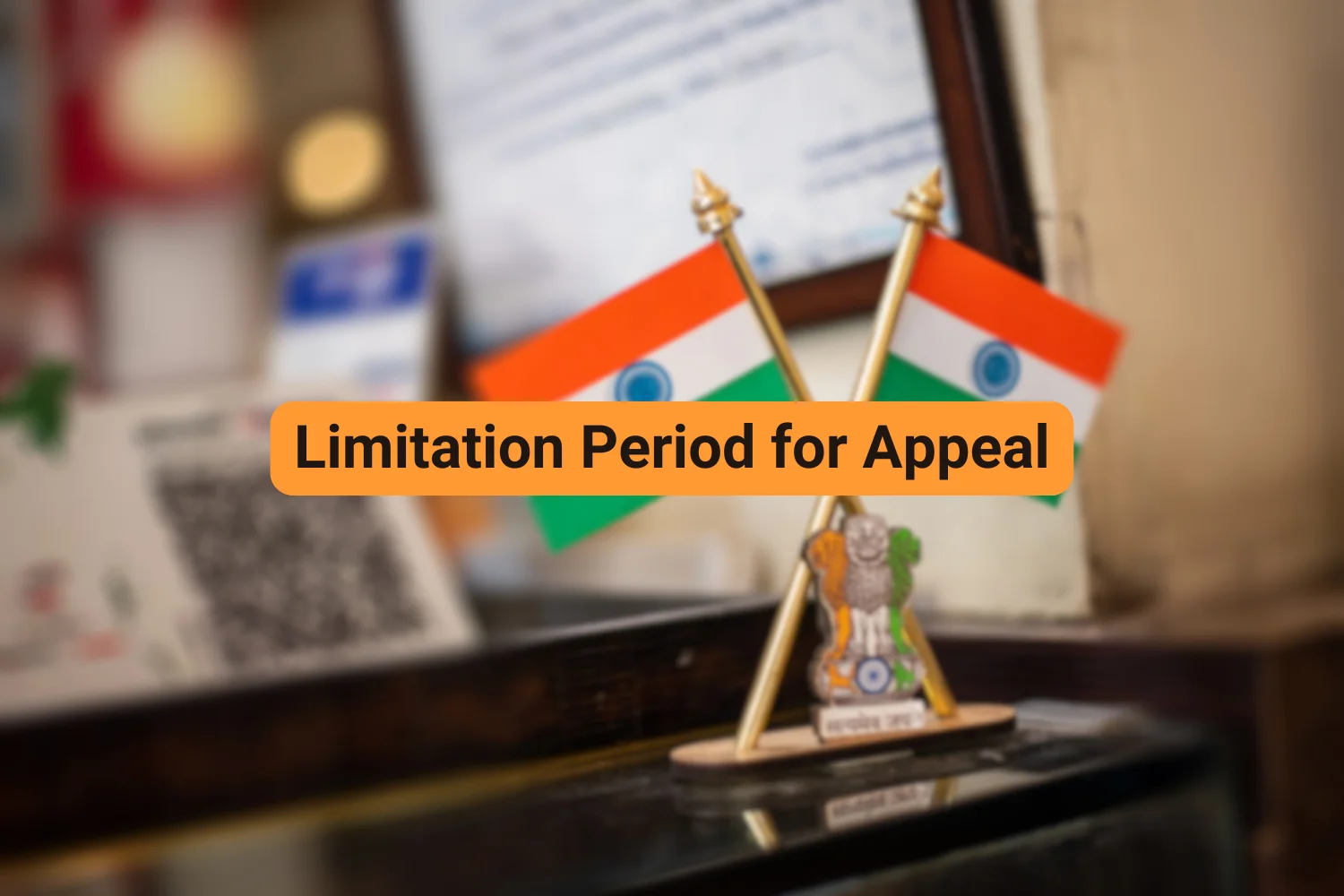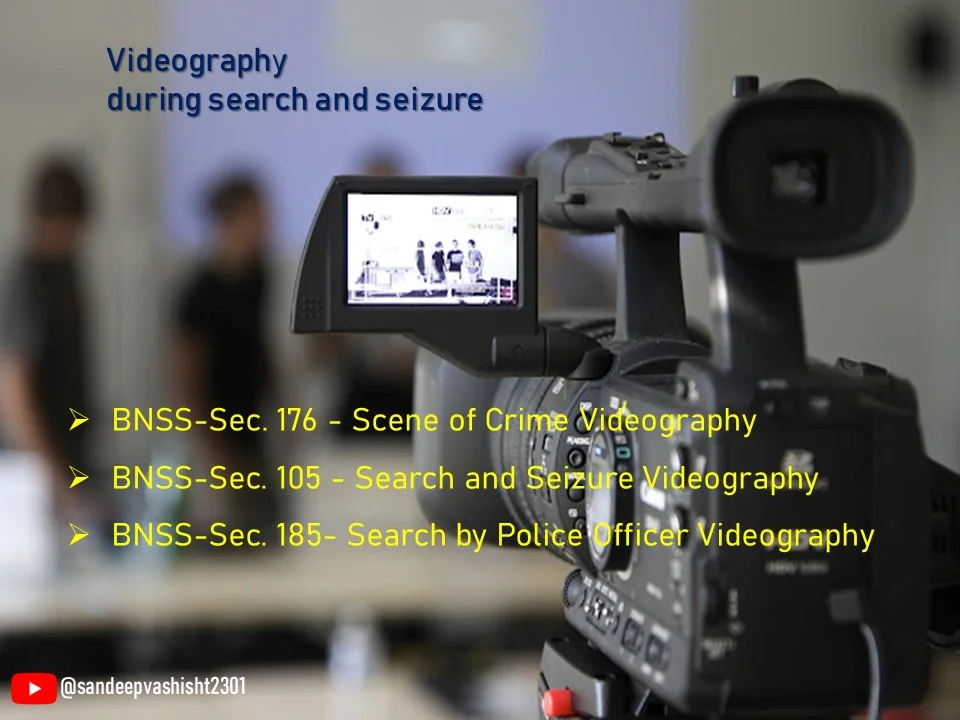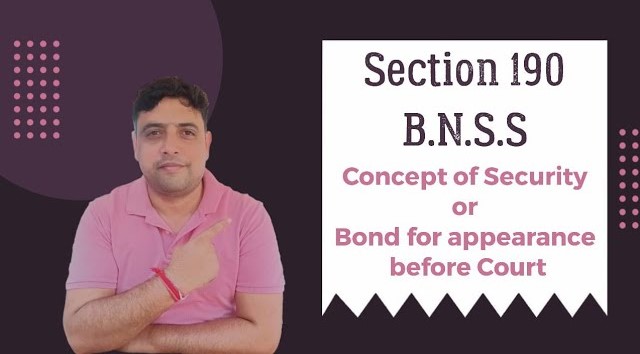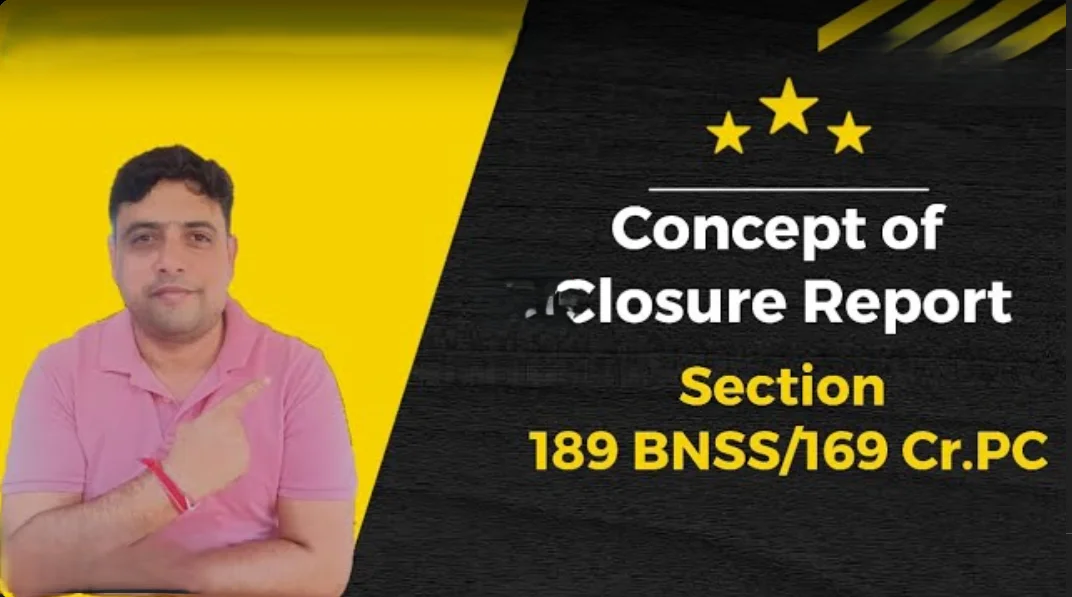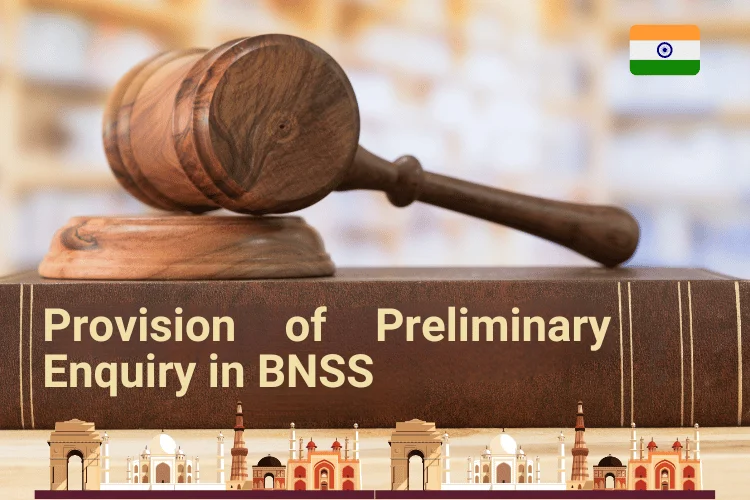Irregular Proceedings: A Ground for Quashing a Criminal Case?
INTRODUCTION
The Code of Criminal Procedure (Cr.PC) is designed to facilitate the ends of justice, rather than frustrate them through technicalities. Its objective is to ensure a full and fair trial for the accused, in accordance with natural justice principles. To achieve this, the Code emphasizes substantial compliance with legal procedures, allowing for minor mistakes and errors that do not cause significant prejudice to the accused.
There are two types of irregularities in criminal proceedings:
- Irregularities that do not vitiate the proceedings (Section 460)
- Irregularities that vitiate the proceedings (Section 461)
According to Black's dictionary:
An irregularity is defined as an act or practice that deviates from normal conduct or procedure,
In essence, the Cr.PC aims to strike a balance between procedural fairness and the pursuit of justice, recognizing that minor errors or omissions do not necessarily nullify the entire trial.
1. IRREGULARITIES WHICH DO NOT VITATE PROCEEDINGS (SECTION 460)
This section outlines the situations where a Magistrate's actions, though not empowered by law, will not invalidate the proceedings if done in good faith and without malice. The specific actions include:
- Issuing a search warrant (Section 94)
- Ordering police investigation (Section 155)
- Holding an inquest (Section 176)
- Issuing process for apprehension (Section 187)
- Taking cognizance of an offence (Section 190)
- Making over a case (Section 192)
- Tendering a pardon (Section 306)
- Recalling a case and trying it himself (Section 410)
- Selling property (Sections 458 and 459)
In these situations, the Magistrate's lack of empowerment will not be grounds for setting aside the proceedings if done erroneously and in good faith.
Section 460 of the Criminal Procedure Code (Cr.PC) deals with irregularities that do not vitiate proceedings. If a Magistrate, not empowered by law, tenders a pardon under Section 306 Cr.PC erroneously and in good faith, their proceedings will not be set aside solely due to lack of empowerment.
Section 460 Cr.PC refers to nine kinds of curable irregularities, provided they are caused erroneously and in good faith. These irregularities do not invalidate the proceedings.
Case Laws
Maulana Abdul Razzak v. State of Bihar 1955, In this case , it was held that an order taking cognizance by a court with no territorial jurisdiction can be treated as an irregularity under Section 460 Cr.PC. However, according to Section 462 Cr.PC, the finding, sentence, or order of the criminal court will not be set aside merely because it was passed by the wrong court, unless it is shown that the error caused a failure of justice.
Lalit Chandra Chanda Chowdhury vs. Emperor (1912) ILR 39 Cal 119 The court in this case has clarified that apart from the requirement of good faith, there is an implied requirement that the irregularity should not occasion a failure of justice. This means that even if an irregularity is committed in good faith, if it results in a failure of justice, it will not be considered a curable irregularity under Section 460 Cr.PC. This additional requirement ensures that the proceedings are not only conducted in good faith but also do not result in a miscarriage of justice.
2. IRREGULARITIES WHICH VITATE PROCEEDINGS (SECTION 461 Cr.PC)
Section 461 of the Criminal Procedure Code (Cr.PC) deals with irregularities that vitiate proceedings. If a Magistrate, not empowered by law, does any of the following things, his proceedings shall be void:
- Attaches and sells property under Section 83
- Issues a search warrant for a document, parcel, or other things in the custody of a postal or telegraph authority
- Demands security to keep the peace
- Demands security for good behavior
- Discharges a person lawfully bound to be of good behavior
- Cancels a bond to keep the peace
- Makes an order for maintenance
- Makes an order under Section 133 as to a local nuisance
- Prohibits, under Section 143, the repetition or continuance of a public nuisance
- Makes an order under Part C or Part D of Chapter X
- Takes cognizance of an offence under Clause (c) of Subsection (1) of Section 190
- Tries an offender
- Tries an offender summarily
- Passes a sentence, under Section 325, on proceedings recorded by another Magistrate
- Decides an appeal
- Calls, under Section 397, for proceedings
- Revises an order passed under Section 446
These irregularities render the proceedings void, unlike those under Section 460, which are considered curable irregularities.
In other words, If any of the irregularities listed in Section 461 of the Criminal Procedure Code (Cr.PC) occur, the proceedings are considered void ab initio, meaning they are deemed to have never existed in the eyes of the law. In such cases, the question of good faith does not arise, and the proceedings do not need to be set aside by a superior court. They are automatically null and void, and any actions taken or orders passed in such proceedings are without legal force or effect.
PROCEEDING IN WRONG PLACE [SECTION 462]
Section 462 of the Criminal Procedure Code (Cr.PC) states that a finding, sentence, or order of a Criminal Court will not be set aside solely because the inquiry, trial, or other proceedings took place in the wrong sessions division, district, sub-division, or local area, unless it can be shown that this error actually caused a failure of justice.
In other words, if a case is heard in the wrong location, but the outcome would have been the same even if it had been heard in the correct location, the proceedings will not be invalidated. The error must have actually caused a failure of justice, such as a miscarriage of justice or an unfair outcome, in order for the proceedings to be set aside.
Case Law
Naziruddin Khan vs. State of Bihar (AIR 1973 SC 186)
The Supreme Court (SC) ruled in this case , that the trial held in Patna was not vitiated, as there was no failure of justice on the grounds of incorrect territorial jurisdiction. This was because there was no allegation of prejudice or failure of justice due to the trial being held in the wrong location. The SC held that merely conducting a trial in the wrong location does not automatically vitiate the proceedings, and there must be a showing of actual prejudice or failure of justice to set aside the trial. This ruling reaffirms the principle stated in Section 462 of the Criminal Procedure Code (Cr.PC).
NON-COMPLIANCE WITH RECORDING CONFESSIONS OR STATEMENTS [SECTION 463]
If a court discovers that a confession or statement from an accused person was not recorded properly by a Magistrate (as required by sections 164 or 281), he can:
Decide to admit the statement as evidence if:
- The accused was not harmed by the non-compliance
- The accused actually made the statement
Even Court can ignore the usual rules in the the Indian Evidence Act 1872, that means if the Indian evidence act excluding such evidence, even then it can be admitted by the court after being satisfied by aforementioned two conditions.
Further Sub section (2) of this section state that this provision is also apply to court of appeal , reference and revision.
Case Law
Ram Singh v. Sonia (2007) In this case it was held by Supreme Court that the failure of the Magistrate to record reasons to believe that the statement was voluntary is a defect that can be cured by Section 463 of the Criminal Procedure Code (CrPC).
In this case, the Magistrate had not recorded the necessary satisfaction regarding the voluntariness of the statement, as required by Section 164 CrPC. However, the court held that this omission was a curable defect under Section 463, which allows the court to take evidence regarding non-compliance and admit the statement if satisfied that the accused was not prejudiced and made the statement voluntarily.
This judgment reinforces the discretionary power of the court to consider admitting statements as evidence despite minor irregularities in the recording process, provided the accused's rights were not compromised.
EFFECT OF OMISSION TO FRAME OR ABSENCE OF OR ERRORS IN CHARGE [SECTION 464]
This section, 464 of the Criminal Procedure Code (CrPC), deals with the effect of omissions, errors, or irregularities in the charge framed against an accused person.
It provides that:
- A court's decision (finding, sentence, or order) is not automatically invalid because of:
- No charge was framed
- Error, omission, or irregularity in the charge
- Misjoinder of charges
Unless, in the opinion of the appellate, confirmation, or revision court, a failure of justice has actually occurred due to such errors or omissions.
- If the appellate, confirmation, or revision court finds that a failure of justice has occurred, it may:
- Order a charge to be framed and the trial to restart from that point (if no charge was framed)
- Direct a new trial with a charge framed in a manner the court deems fit (if there was an error, omission, or irregularity in the charge)
However, if the court finds that the facts of the case are such that no valid charge can be preferred against the accused based on the proven facts, it shall quash the conviction.
In essence, this section provides a safeguard against technical errors in the charge and ensures that a failure of justice does not occur due to such errors, while also empowering the court to take corrective measures to ensure justice is served.
Case Law
Kamli vs State of UP AIR 2019 SC :
The court held that the absence of a formal charge would only affect the convictions if it caused harm to the accused. To determine if harm occurred, the court looks at whether the accused knew about the essential elements of the offense, if they were explained to him, and if he had a fair opportunity to defend himself. Since the accused didn't raise any objections regarding the lack of charges, it indicates that he had a fair chance to defend himself despite the omission.
Abdul Rehman vs Emperor 1927
Privy Council has held in the case that a conviction won't be overturned solely because of an error, omission, or irregularity unless it can be shown that it led to a miscarriage of justice. Even if there were mistakes, if the conviction is supported by the provisions outlined in sections 464 and 465, it may still be upheld. In other words, the focus is on whether the error affected the fairness of the trial or the outcome of the case.
A higher court (Court of Appeal, Confirmation, or Revision) will not reverse or change a decision made by a competent lower court due to:
- Errors or omissions in the complaint, summons, warrant, or other documents
- Irregularities in the trial or inquiry process
- Errors or irregularities in the prosecution's sanction
Unless, in the opinion of the higher court, these errors or irregularities have actually caused a miscarriage of justice.
In other words, the higher court will only intervene if it believes that the errors or irregularities have led to an unfair outcome, and not merely because of technical errors or minor mistakes.
When deciding if an error, omission, or irregularity in a legal proceeding has caused a miscarriage of justice, the Court will consider:
- Whether the issue could have been raised earlier in the proceedings
- Whether the issue should have been raised earlier in the proceedings
In other words, the Court will take into account whether the defendant or their legal representative had the opportunity to address the issue earlier and choose not to, or if they should have spoken up earlier but failed to do so. This helps the Court determine if the error or irregularity actually affected the outcome of the case.
Case Law
Darbara Singh vs State of Punjab AIR 2013 SC
In this case, It was held by the court that when there's an error, omission, or irregularity in framing charges, the court should consider whether the accused could have objected to it earlier in the proceedings. The court emphasizes that every accused person has the fundamental right to a fair trial. This includes understanding the charges against them and having a clear explanation of the facts being presented against them. Additionally, the accused must be given a full and fair chance to defend themselves against those charges. So, the court evaluates whether the error in framing charges has affected the accused's ability to understand the case against them and defend themselves properly.
CBI v. V.K. Sehgal and Another , In this case the Supreme Court ruled that a Court of Appeal or Revision cannot reverse a finding, conviction, or sentence solely due to an error or irregularity in the prosecution's sanction unless it has led to a failure of justice. The court emphasized that to determine if the lack of valid sanction resulted in a failure of justice, it must consider whether the accused raised any objection during the trial. If the accused didn't raise an objection during the trial, they can't raise it for the first time in the appellate court. However, even if the objection was raised during the trial, it doesn't automatically mean there was a failure of justice; each case must be evaluated on its own merits.
DEFECT OR ERROR NOT TO MAKE ATTACHMENT UNLAWFUL [SECTION 466]
An attachment (like a property seizure) made under this code is still valid even if there are:
- Defects in the summons
- Errors in the conviction
- Issues with the writ of attachment
- Problems with other related proceedings
The person carrying out the attachment won't be considered a trespasser (someone entering or taking something without permission) due to these defects.







